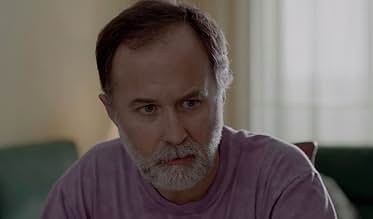This film begins as a fairly common story, a story that in times of crisis anyone can feel absolutely identified. Luis is an unemployed literature professor who is barely able to make his end meet. He wants to fulfill the last wish of his 12-year-old daughter Alicia, patient of terminal cancer. Alicia wants an expensive dress of Japanese cartoon series "Magical Girl Yukiko". On the other hand, the film introduces us to Barbara, a young woman who suffers from mental disorders and Damian a retired teacher doing time in jail.
Three people in extreme conditions seem to move in a parallel universe where violence and pain dominate, but in a poetic way. In the universe of Vermouth, everyone is guilty and everyone is innocent. Magical Girl talks about violence and sadness using the rules of a film noir, with many subtle references of Japanese cinema.
It would be easy to fill pages and pages about the virtues of "Magical Girl", but it is a little complicated to do without uncovering some of the many surprises of the film. Because in reality, it is much more than a story where lives intersect and the storm broke. It is a framework where the details are taken care to detail. The music appears only when it is needed.
Jose Sacristan, Barbara Lennie and Luis Bermejo not need more than one scene to explain the most accurate descriptions of screenplay. Lucia Pollan, a revelation, it is amazing to see her purity and innocence overshadowed by the situation.
What is bad, however, is that all these mixed ingredients in the same bowl can roll back to a kind of niche audience more accustomed to these kinds of films. As for the end, it is open to many interpretations, which can leave the viewer confused, but will give us the opportunity to look, to find our own explanation to what is happening.
Magical Girl talks about violence and sadness using the rules of a film noir, with many subtle references of Japanese cinema.

![Regarder Tráiler [OV]](https://m.media-amazon.com/images/M/MV5BMjNkZWFjNjktNjdiOS00NGRkLWFlM2MtMjQ2ZGY1MjYwMTNiXkEyXkFqcGdeQXRyYW5zY29kZS13b3JrZmxvdw@@._V1_QL75_UX500_CR0)
















